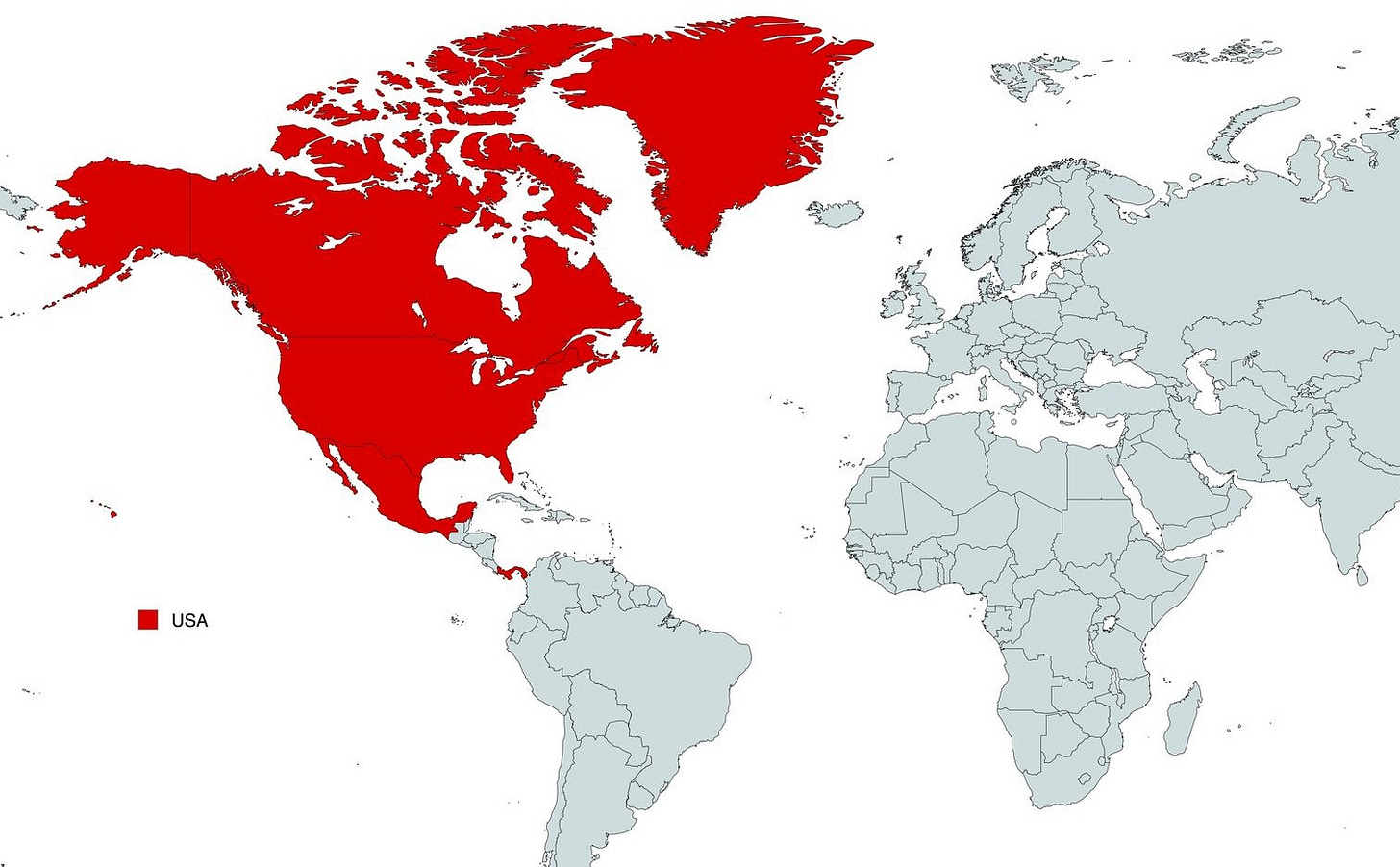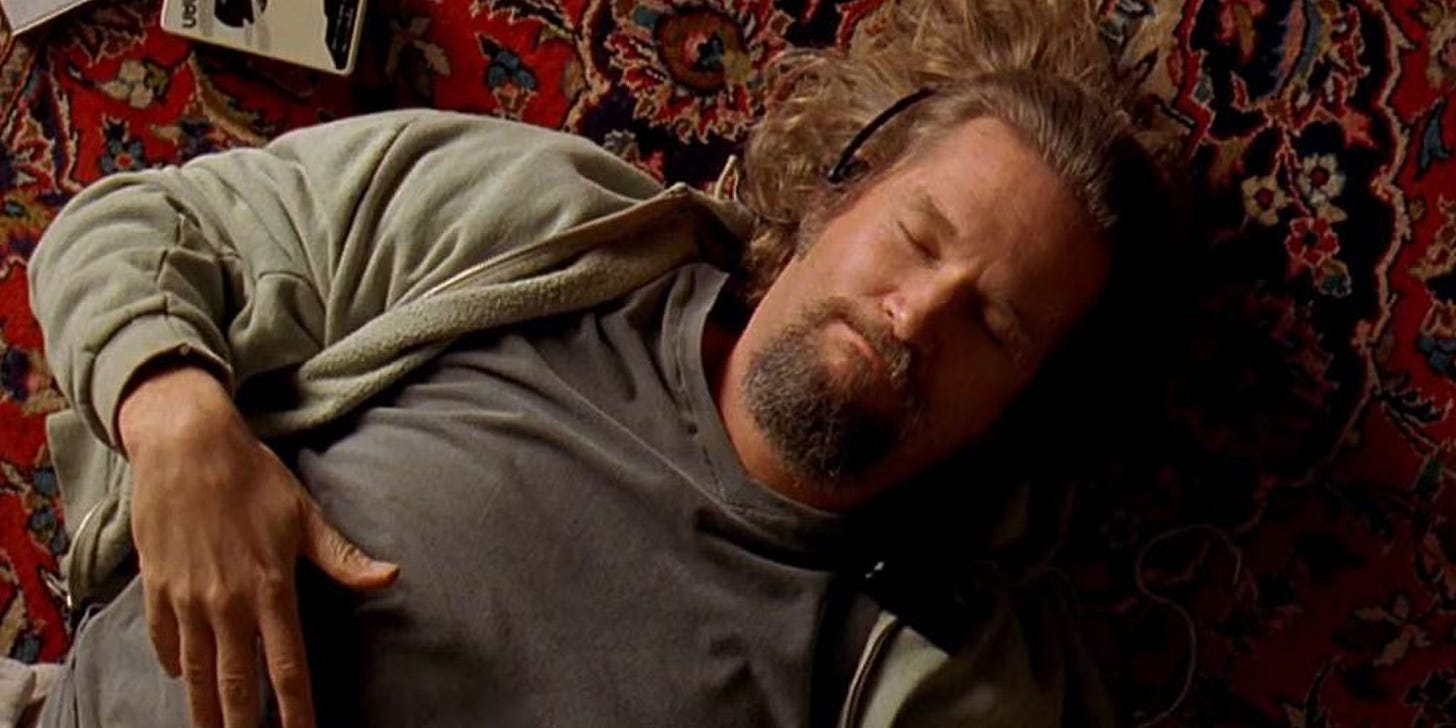Trumpifest Destiny?
I have an acquaintance who has a habit of beginning conversations two or three steps past the normal introductories. Time and experience have taught me to play along until she provides enough context for me to figure out what she's talking about, and then I can tacitly backfill the conversation so that it starts to cohere into something recognizable.
I get that feeling, often, when listening to Trump. As Nellie Bowles recently and pithily put it in The Free Press,
Trump says everything, all the words, in a long stream of consciousness and unconsciousness, for some sixteen hours each day, across four or five podcasts. So the Watergate reporting of this era will be determining which things he is, according to credible sources, not joshing about.
So, unsurprisingly, I was caught in a pair of "huh?" moments when I heard Trump saying stuff about taking over the Panama Canal and about buying Greenland from the Danes.
That on top of Trump's quipping about Canada becoming the 51st state.
Before knee-jerking, as so many of my social media acquaintances did, I said to myself "roll with it all and figure out what the [redacted] he's talking about."
I'm still rolling with it, data gathering and doing my best "The Dude abides" imitation.
I am also folding these ingredients into a stew that is starting to resemble something.
Many have suggested that a successful businessman is well-suited for running the nation. My frequent caveat is "perhaps, but only if he doesn't try to run the nation as a business."
Businesses compete. Ideally, they compete on a level playing field, but even when the field is not level, they still compete. Their success can be complementary with the successes of other businesses, but competition is often a zero-sum thing. Drawing more customers usually means, at least in the short term, that someone else is drawing fewer. Competing to buy a particular piece of real estate means there will be a winner and a loser. One restaurant's increased success is another's slide into failure.
While it's not as binary as all that - businesses can cooperate for mutual benefit, especially if they are in different steps of the supply chain - the competitive mindset is not optimal for a President.
The government is not supposed to be a competitor on the playing field. It is the playing field itself, and history has shown us that when that field is level, fair, and encumbered with only a limited set of rules, prosperity improves. Free markets work better than managed economies, and governments that try to pick winners end up doing more harm than good.
Herein lies one of my biggest criticisms of Trump. With the caveats that he hasn't actually done anything yet in his second term, and that predicting what he actually will do as opposed to stuff he's just saying in furtherance of some unspoken plans is a fool's errand, the pattern I see is applying a competitive mindset to the business of running a nation.
Nations do compete in many ways, but nations prosper most when they cooperate. When free trade is maximized in both directions, when the "win-win" of mutually beneficial transactions is allowed supremacy. Trump's nativist and "America first" proclivities are positives in certain areas. Fewer foreign entanglements that benefit other nations. European nations spending more on their defense. Managing immigration so that, as David Koch put it, we "let anybody in who will make the country better, and no one who will make it worse."
But, the notion of tipping the playing field to repatriate jobs that are currently done overseas is where it goes wrong. I'm not talking about leveling the playing field, about ensuring our trade arrangements are symmetrical rather than skewed in a partner's favor. I'm talking about using tariffs and other government distortions to cajole or coerce domestic bias. Distortions are inefficiencies, and inefficiencies drive up costs at the end of the chain. That would be you and me.
Trade deficits are mostly irrelevant, other than as a “take a look to see if coercion is at the heart” telltale. I have a giant trade deficit with Costco, yet we both are better off for our voluntary interchange. But, some use trade deficits as proof of unfairness, as if buying foreign-made T-shirts for a fraction of what domestically made would cost is somehow harmful to America. No, I am better off having the money I didn't spend on that shirt available for other uses, and the worker who made that shirt is better off for having that job rather than one that paid less.
Unfortunately, those with a business mindset are sometimes inclined to think of such matters as competition rather than mutually beneficial cooperation, and this is what I fear from Trump.
This is writ large in the statements that Trump made about the canal, Greenland, and Canada, and this prompts me to draw a parallel with the concept of Manifest Destiny that drove 19th century American expansion.
Is Trump embracing a vision that parallels Manifest Destiny, or are his statements about Panama, Greenland, and Canada individually motivated and not part of some overarching theme?
With Trump, it's hard to tell, and so I abide. I wait to see what he actually does tries to do, and what the methods of his attempts tell us. The Canada bit is almost certainly trolling, and he’s apparently quite serious about Greenland, but who knows what the Panama bit is about. Nevertheless, I won’t apply no certainty to any of the above until he’s actually doing stuff as President.
There’s an old economic system that focused on achieving a favorable balance of trade by exporting more than importing. It was called mercantilism, and it was a marriage of business and government. History properly tossed it in the dustbin in favor of capitalism and free trade. If Trump does indeed have a mercantilist mindset, you and I are going to pay a hefty price.





I agree. He is a confusing man. I didn't vote for him because I understood him. I voted for him because I understood the other guy.
He has so much rolling around in his head and it just flows forth from his mouth unredacted. I believe it’s part a weird thought process.